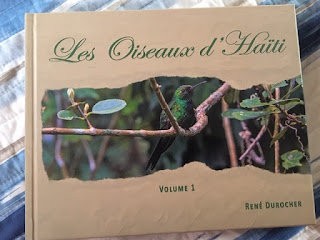I don't even remember when I first started reading Rachel Pieh Jones' blog,
Djibouti Jones. I know it was a long time ago. I visited for her perspective on making a life in a place that could be challenging. I kept going back for her writing about sending her children to boarding school, her book recommendations, her meditations on fear and risk. And as she posted her (increasingly impressive) publications, I always clicked through and read what she had to say.
So it was natural that I would want to read her new book,
Stronger than Death: How Annalena Tonelli Defied Terror and Tuberculosis in the Horn of Africa, coming out in October.
Rachel has been working on this labor of love for five years, so some glimpses have shown up in her blog. I knew of her interest in TB, in Italian, in all things Somalia.
Nonetheless, I was blown away by this book and by Annalena Tonelli. This is a complex, category-evading look at a woman most people have never heard of. That's how Annalena wanted it; she deliberately maintained a low profile in the service of her patients and her work. She put all her energy and efforts into loving and treating the people in front of her and raising money so that she could keep doing just that. "Annalena," writes Rachel, "followed the example of Jesus, who never spoke of results. She believed in the power of presence." She didn't waste her energy agonizing over metaphysics, either; "I learned to bend my head in front of the mystery of pain, suffering, and evil," she wrote. "I do not want to know why. I will not torment myself unnecessarily. There is no answer. It is the mystery hidden from the foundations of the earth."
Annalena had plenty of opportunity to witness pain, suffering, and evil, as she battled tuberculosis, hunger, bureaucracy, terrorists and criminals, all the way through to her death, which begins the book. Yet Rachel concludes, "I think Annalena made a choice, a conscious decision, to focus on joy and hope. Had she focused on sickness and death, she would have despaired....Annalena taped a list of the Wagalla dead [victims of a massacre] to the walls of her Merka room and said they often came to her in her dreams, one by one, during the night. But in the morning, when she woke before sunrise and sipped a cup of kawa, Somali coffee, she would look out the three windows of her room that opened onto the sea and watch boats bob and sway in the silvery-gray water. 'The sky is clearing,' she wrote. 'A new day. God is not yet tired of men.'"
Annalena's character comes through loud and clear in this story. She is an inspiring and radical role-model who deserves to be more widely known. The way she learned the names of her patients and all their family members, her meticulous record-keeping in clinical work, her mentoring of others, her ability to deny herself even to the point of hardly eating or sleeping, her sense of humor: all of these qualities, and more, resonate. Rachel herself clearly finds Annalena someone to learn from, and I loved the glimpses of Rachel searching for encouragement for her own journey. She marvels over Annalena's commitment and compares it to her own. She asks everyone she interviews why Annalena stayed in the difficult place she chose to work, and why the interviewee stayed, and
how. "Some people," says Antonio, one person she talks to about Annalena, "feel a challenge when they see Annalena's life and then they can't do it. There can be complicated feelings." Rachel doesn't shy away from these complicated feelings, and to me her obvious connection with Annalena is one of the great strengths of this book.
"I trust in a resurrection," wrote Annalena. "I let every event settle and rest in the intimate presence of God." Reading about her makes me want to do the same.






